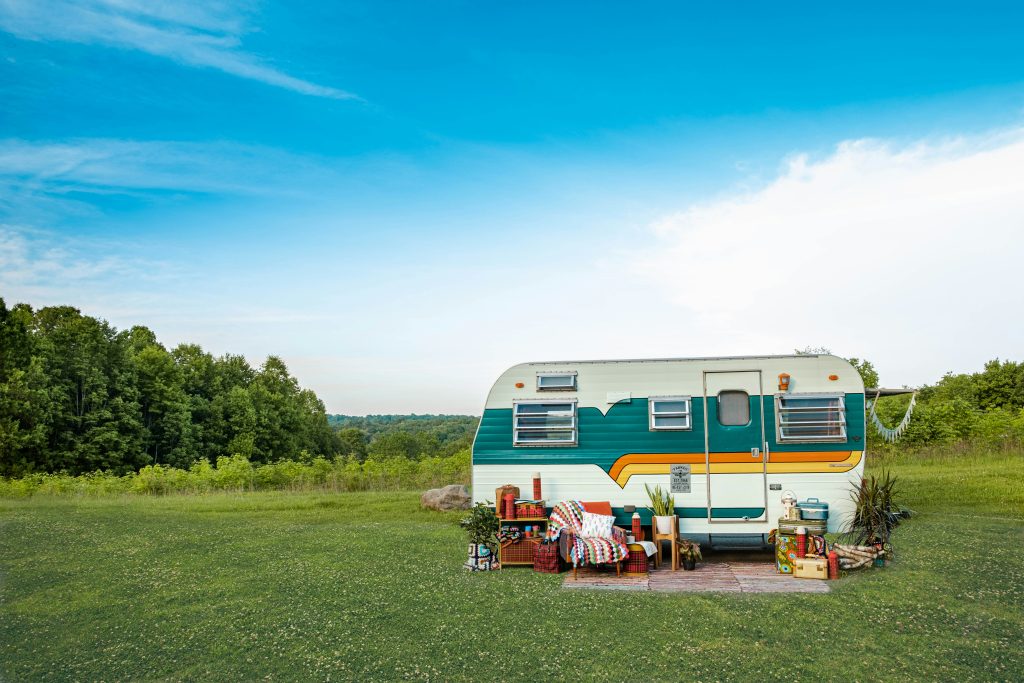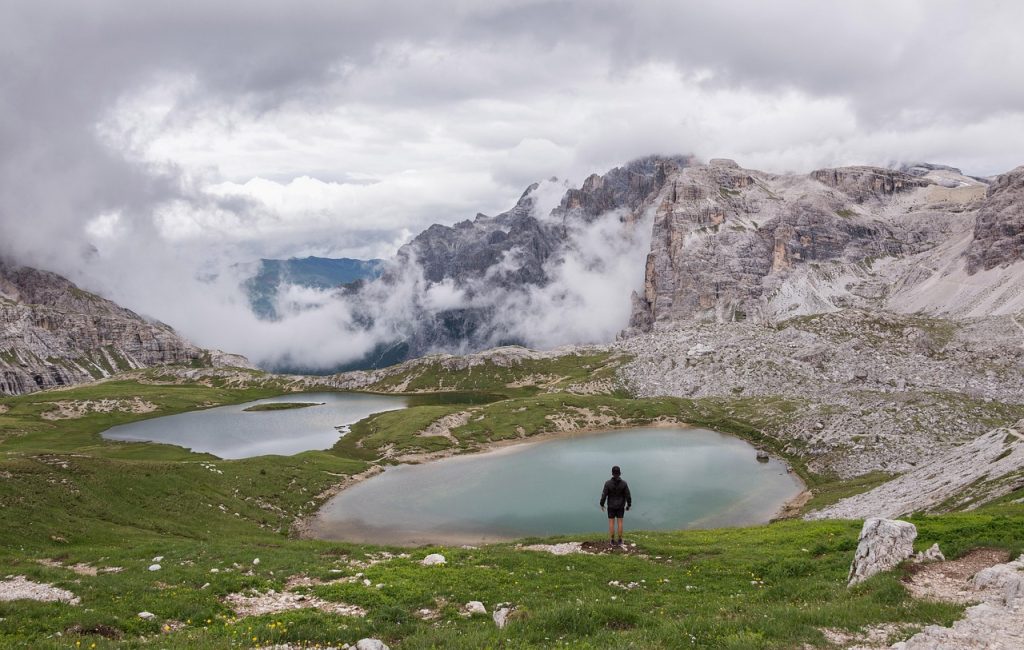
As dawn breaks over Camping Hopfensee in Bavaria, Germany, the 377 parking spaces gradually fill with various recreational vehicles. Children weave through the campground on bicycles while adults prepare breakfast, the aroma of coffee blending with the fresh outdoor air.
This scene represents just one of thousands of campgrounds across Europe. The continent is home to over 6 million RVs and numerous campgrounds, with Germany alone operating 3,097 open campgrounds offering more than 200,000 parking spaces.
Market Overview and Cultural Roots: Europe’s Dual Advantage in RV Camping
Europe’s camping and RV market has reached a value of $16.15 billion, benefiting from growing interest in ecotourism and the economic advantages of camping as a vacation option.
Post-pandemic shifts toward domestic travel and sustainable tourism have further driven market growth. Innovations in camping equipment and improved campground infrastructure continue to support this expansion, meeting consumer demand for both traditional and modern experiences.
Germany and France dominate the European market with their extensive campground networks, supportive regulations, and mature RV industries. Germany boasts strong RV manufacturing capabilities, while France’s beautiful and diverse camping landscapes make it a preferred destination for both domestic and international tourists.
European RV culture has deep historical roots. The world’s first motorized RV was invented in 1931, originating from a German love story. German artist Friedel Edelmann and her fiancé, who traveled frequently for work, built a “trailer” with three beds and a pop-up roof to solve their distance problem.
By the early 1970s, with Europe’s economic development and automobile普及, RV camping began entering ordinary households on a large scale. By the early 21st century, outdoor camping had become a well-established industry across Europe.
Market Data and Composition: Consumption Trends Behind the Numbers
The scale of Europe’s RV camping market is impressive. Globally, RV ownership exceeds 20 million vehicles with approximately 50,000 campgrounds worldwide. In comparison, China has only about 20,000 RVs and roughly 300 campgrounds, showing significant market disparity.
Germany, as representative of European RV culture, has 1.96 million households owning RVs. In 2021, German campgrounds recorded 33 million overnight stays, a 6.3% year-on-year increase, including approximately 1.6 million foreign guests, half of whom came from the Netherlands.
The market can be divided by accommodation type into tents, travel trailers, recreational vehicles (RVs), and glamping facilities. The tent segment dominates due to affordability and ease of use, attracting budget-conscious travelers and first-time campers.
By booking channel, the market divides into direct bookings, online travel agencies, campground websites, and specialized camping platforms. Online travel agencies lead this segment, as consumers prefer platforms offering comprehensive campground options, reviews, and convenient booking services.
The Netherlands, with a land area less than half the size of Chongqing, maintains 2,739 campgrounds, making it Europe’s most densely populated country for camping facilities. The country has nearly 90,000 RVs, and the Dutch RV Club (NKC) membership has reached 31,227 people.
Cultural Significance and Consumer Behavior: Social and Environmental Aspects of European Camping
In Europe, camping shares distinct social qualities with activities like skiing. In natural environments, people more readily lower their guards and engage in open conversations with strangers.
RV parks have neighbors just like cities do, but nature naturally brings people closer together. Particularly during meal times, neighbors often observe each other’s cooking and even extend dinner invitations.
International campers using chopsticks often attract curiosity and become conversation starters. Campgrounds also serve as playgrounds where children learn roller skating, bicycle riding, and swimming together.
European camping culture emphasizes environmental protection and sustainable development. Europe promotes the “Leave No Trace” principle, requiring campers to take responsibility for the natural environment and remove all waste when departing.
Eco-camping has emerged as a new trend, with over 230 campgrounds in Germany, Italy, Austria, and Switzerland receiving official eco-campground certification. These facilities use solar panels for electricity generation, practice green waste separation, and build accessible facilities for people with disabilities.
It’s important to note that in most European countries, camping doesn’t mean wild camping. Setting up tents without permission on private property or in forests is illegal, primarily to protect wildlife and ensure visitor safety.
Market Challenges and Future Opportunities: The Dual Nature of Europe’s Camping Industry
Europe’s camping market faces challenges with seasonal dependence. Over 70% of camping activities concentrate in summer months, causing significant winter revenue declines for campgrounds and creating year-round profitability pressures.
Regulatory complexity continues increasing. Campgrounds face growing regulations regarding fire safety, waste management, and other areas. In 2024, global camping operators faced $8 billion in compliance costs, creating entry barriers for small businesses.
Despite these challenges, the market future remains full of opportunities. Technological advancements are transforming camping experiences, with global sales of solar camping equipment exceeding 10 million units in 2024.
Glamping has become a significant trend, with 5,000 new glamping campgrounds added globally in 2024 representing $1.5 billion in investments, meeting demand for high-quality outdoor experiences.
Digital transformation continues driving market development. Through mobile applications and digital payment solutions, booking experiences have become more convenient, and personalized camping experiences are redefining market landscape.
The Caravan Salon Düsseldorf, dating back to 1962, serves as the world’s premier RV exhibition gathering industry innovation and development trends. The 2025 event will run from August 29 to September 7, following the previous edition that attracted over 600 companies and 232,000 visitors.
Insights for the Chinese Market: Local Application of European Experience
While Europe’s RV market approaches saturation with annual growth rates declining, China’s RV camping industry remains in its early stages, suggesting broader market potential.
China’s RV travel industry is developing rapidly. The 2019 market size reached approximately ¥12 billion, representing 30% year-on-year growth. The country has about 1,000 RV rental companies and over 100,000 RVs.
Policy support represents a crucial driver for China’s market development. The 2016 National Tourism Administration’s “Guiding Opinions on Promoting RV Tourism Development” explicitly called for accelerating RV tourism infrastructure construction and promoting innovation in RV tourism products and services.
Product differentiation strategies remain essential for Chinese companies. Winnebago’s approach of offering multiple RV styles to meet diverse consumer needs results in annual sales exceeding 30,000 units.
Service customization strategies prove key to enhancing customer satisfaction. US RV rental company Outdoorsy provides customized services based on individual user needs, including recommending suitable RV types for specific travel routes and offering travel equipment rentals.
The Caravan Salon Düsseldorf attracts over 230,000 annual visitors, serving as a symbol of European RV culture since its establishment in 1962.
In European campgrounds, children learn bicycle riding, make friends, and help families buy breakfast—these everyday experiences shape generational growth memories. RVs have evolved beyond mere travel tools into connectors between people and nature, and vessels for family tradition.
Industry data shows over 500 million people choose camping vacations annually in Europe. The continent’s 30,000 campgrounds tell the story of harmonious coexistence between humans and nature in the most natural way possible.
